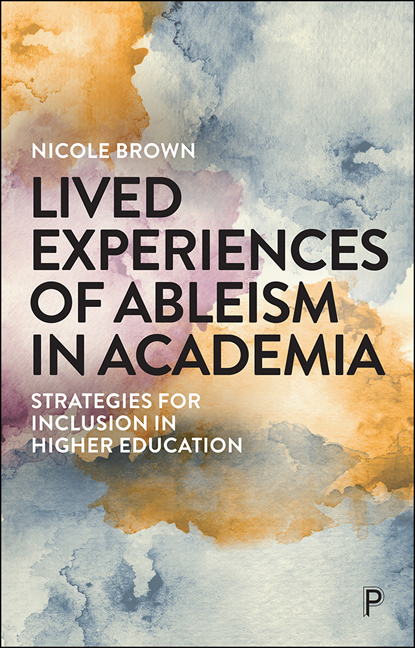6 - Stammering in academia: voice in the management of self and others
Published online by Cambridge University Press: 18 December 2021
Summary
Introduction
Scene 1: The interview
Having accepted an interview opportunity to augment his research capacity, Robert found himself sitting in a generic meeting room opposite a panel of three interviewers. Trying to settle into his new surroundings, he awaited their first question.
Interviewer 1: Please can you provide us with a brief overview of your PhD research?
Robert: Yes. N-n-n-not a p-p-prob problem. My reeee-search is in-v-v-v-v-est [pause]. In-v-v invest [intake of breath]. In-v-v [pause]. Investigating thh the [intake of breath].
Robert's internal dialogue: Why did I bother coming to this interview? It was obvious that I would spend the whole time ‘blocking’ – interviews always make my stammer worse. Anyway, I have made it this far, so they must be interested in what I could bring to the position. Just remember to smile, maintain eye contact and, if you do stammer, make sure that you stammer to the best of your ability!
Interviewer 2: Is there anything that we can do to help?
This opening excerpt depicts an experience of the first author, Robert, during a recent exchange with a funding body interview panel. To augment his research capacity, he applied for a Policy Fellowship Scheme and secured an interview for the opportunity. His area of research and the intricacies of the scheme are relatively unimportant here. Rather, it is his experiences as an academic who stammers, how he makes sense of these experiences and the response that he receives from his academic peers – either implicitly or explicitly – that are fundamental to cultivating an academic voice and identity, which are the focus of this chapter.
Voice is a foundational aspect of developing the necessary agency for academic success. Voice can be generated in a variety of forms: from our speech and communication with peers, to our internal dialogue, electronic communication, what others say about us, and our writings and publications. One's voice in its myriad forms facilitates participation in the many activities of professional academic life: delivering conference presentations, teaching responsibilities and workshops; discussing research ideas with peers; carrying out clerical duties; contributing to meetings; and providing a succinct and coherent account of yourself when pursuing career opportunities, such as interviews, academic positions, and promotions.
- Type
- Chapter
- Information
- Lived Experiences of Ableism in AcademiaStrategies for Inclusion in Higher Education, pp. 111 - 126Publisher: Bristol University PressPrint publication year: 2021

